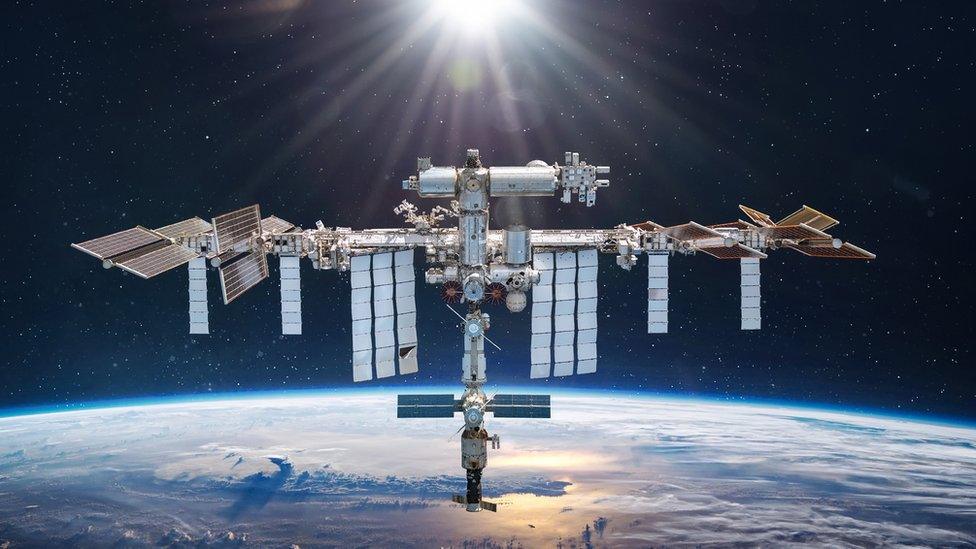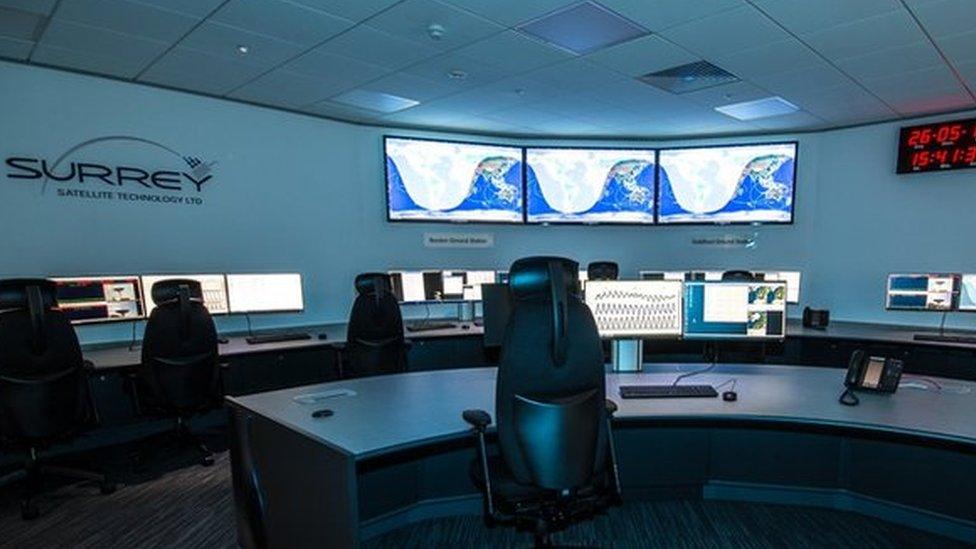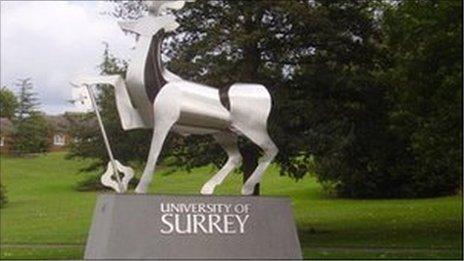Surrey scientists to help build zero gravity space fuel system
- Published

The fuel tank will be sent to the International Space Station in 2025
Experts at the University of Surrey are helping to build a revolutionary fuel gauge that will be tested aboard the International Space Station (ISS).
The gauge can accurately measure how full a tank is in zero gravity by using electrical sensors.
The Smart Tank for Space (SMARTTS) is being developed by Atout Process Ltd.
The company has enlisted the help of space engineers at the university's Surrey Space Centre, and it will use facilities available at the site.
The tank will be constructed during 2024 and delivered to the space station in 2025.
Surrey is an important centre for space sciences in the UK, with the university being awarded £400,000 in funding from the UK Space Agency in February last year.
Professor Keith Ryden, director of Surrey Space Centre, said: "Gauges like those used in cars don't work in zero gravity, so alternative techniques are used in space which rely on estimates and calculations.
"However, errors can accumulate and there's no real-time information, so mission designers have to factor in extra reserves of fuel, with significant associated costs.
"SMARTTS could be a real game-changer in the space sector, saving money and opening doors to new industries, and we're keen to see how they operate in orbit."

Follow BBC South East on Facebook, external, on X, external, and on Instagram, external. Send your story ideas to southeasttoday@bbc.co.uk, external.
Related topics
- Published14 February 2023

- Published16 September 2021
- Published29 May 2015

- Published3 October 2011
- Published1 May 2011
